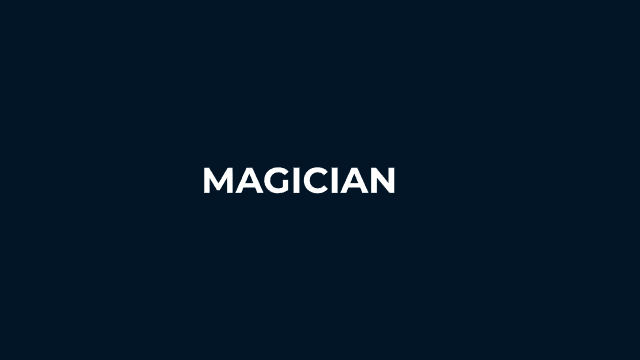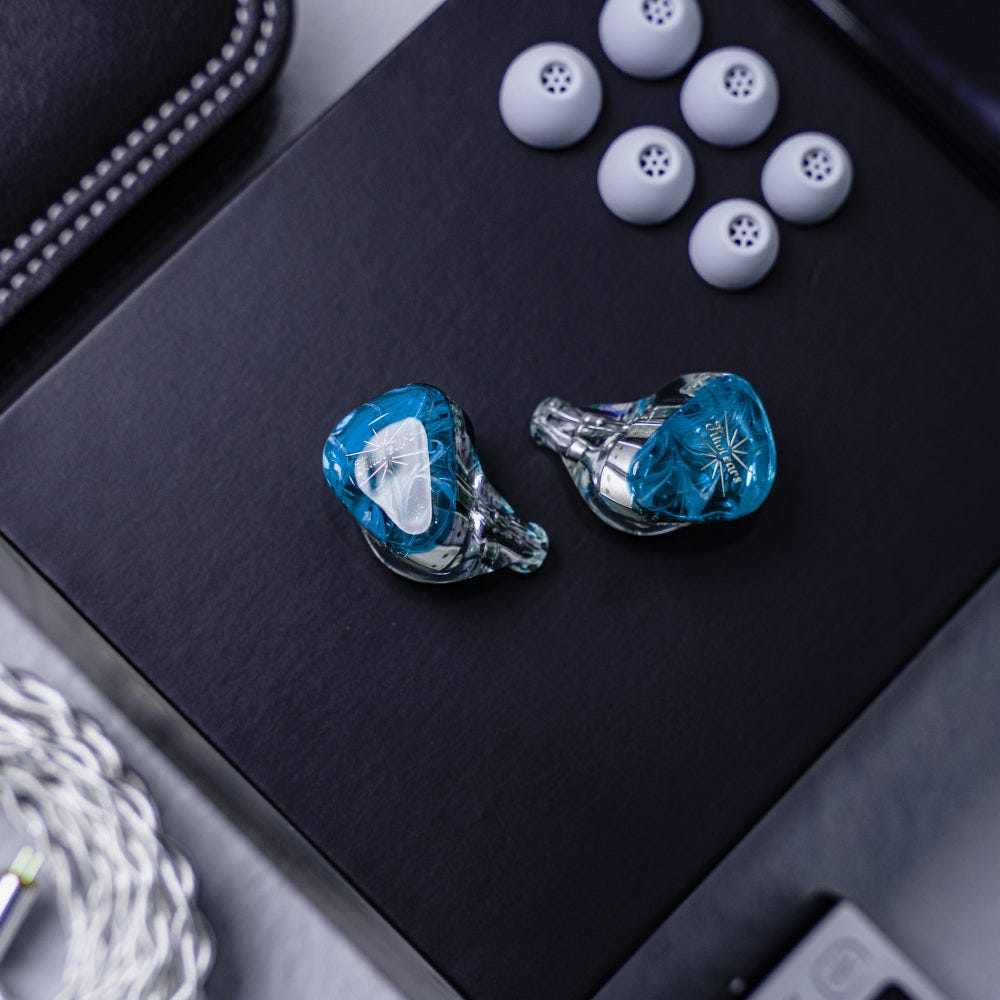Virtus 👊 #001: Embrace Pain, Unleash Potential: Daring to Dream, AI's Nobel Win, and the Alchemy of Emotion
Are you ready to transform your relationship with pain and unleash your true potential?
In this groundbreaking first issue:
Discover why resisting negative emotions might be holding you back, and learn how to turn your pain into a powerful catalyst for personal growth.
Meet David, a man who dared to be "delusional" and found the courage to pursue his dreams against all odds.
Explore the cutting-edge world of AI in scientific discovery. Could your next colleague be an artificial intelligence?
Uncover the wisdom in Rumi's timeless poetry and how it applies to modern masculinity.
Plus: Learn a rare word that could change how you view your personal evolution.
Dive in and start your journey to a more balanced, empowered you.
MAIN ARTICLE
Men’s Relationship with Pain: Transforming Resistance into Growth
Photo by Nacho Juárez
In the journey of modern masculinity, one of the most challenging yet crucial skills to develop is a healthy relationship with pain and negative emotions. As men, we're often conditioned to view these experiences as weaknesses to be overcome or ignored. However, this approach can lead to a cycle of resistance and suffering that holds us back from true growth and fulfillment.
Gelong Thubten, in his insightful book "A Handbook for Hard Times," offers a perspective that challenges our conventional understanding of pain. He suggests that our suffering may not stem from the pain itself but from our resistance to it. This idea is revolutionary for those of us striving to navigate the complexities of modern manhood while maintaining our emotional well-being.
The Power of Embracing Emotion
The key to transforming our relationship with pain lies in a counterintuitive approach: embracing it fully. As Thubten explains, "If you rest into the emotion, relax into the emotion, the resistance disappears because you're fully embracing how you feel." This practice of acceptance doesn't mean resignation or weakness. Instead, it's a powerful tool for emotional alchemy.
When we fully embrace what we perceive as a negative emotion, we begin to see it differently. It's no longer a threat or a sign of failure but simply energy in our body. By removing the resistance, we allow this energy to transform. Anger, fear, or sadness can melt into more positive states, even joy, when we stop fighting against them.
Questioning the Nature of Suffering
Thubten asks, "Is there any suffering other than resistance?" This inquiry invites us to reconsider our entire relationship with challenging experiences. If suffering is primarily created by our resistance to what we're feeling, then learning to embrace our emotions becomes not just a coping strategy but a path to liberation.
Practical Steps for Men 📝
Acknowledge the Emotion: The first step is recognizing and naming your feelings without judgment.
Feel It Fully: Instead of trying to push the emotion away, allow yourself to experience it completely. Notice where you feel it in your body.
Remove the Narrative: Separate the raw feeling from the story you're telling yourself about why you feel this way.
Practice Acceptance: Remind yourself that it's okay to feel this way. This emotion is part of your current experience, and that's okay.
Observe the Transformation: As you embrace the feeling without resistance, notice how it begins to shift and change on its own.
The Strength in Vulnerability
Embracing our pain and negative emotions isn't about being passive or weak. On the contrary, it requires immense strength and courage. It's about being fully present with our experience, no matter how challenging. This practice builds resilience, emotional intelligence, and a deeper understanding of ourselves.
When men learn to work with their emotions in this way, they become more equipped to handle life's challenges, more empathetic in their relationships, and more authentic in their self-expression. They break free from the limitations of traditional masculinity and step into a more holistic and powerful way of being.
In a world that often pushes us to always be strong and in control, embracing our full range of emotions—including pain—is a radical act of self-care and growth. It's a path to true strength that doesn't deny our humanity but fully encompasses it.
Remember, the goal isn't to eliminate pain or negative emotions - they're an inevitable part of the human experience. Instead, by changing our relationship with these feelings, we can transform them from sources of suffering into catalysts for personal growth and deep, lasting happiness.
SHORT STORY
The Courage to be Delusional
Photo by Sergio Cruz
David stood at the edge of his backyard, staring at the ramshackle shed that housed his half-finished inventions. The setting sun cast long shadows across the overgrown grass, mirroring the dark thoughts that crept into his mind. He was a man of ideas, of grand visions that danced just beyond his grasp. But for every spark of inspiration, there was a voice – his voice – ready to douse it with doubt.
"I could have done that," he muttered, scrolling through his phone. Another startup success story, another innovation changing the world. He tossed the device onto his lawn chair and sank into it, the metal creaking under the weight of his unfulfilled potential.
The neighborhood hummed with the sound of lives being lived. Children laughed, dogs barked, and somewhere in the distance, a lawnmower growled defiantly against the encroaching evening. David closed his eyes, trying to shut it all out. But the noise in his head was louder than any external disturbance.
You're not good enough. You're not smart enough. Who do you think you are?
He'd heard these whispers all his life. They were his constant companions, more familiar than any friend or lover. They were the reason his shed was filled with half-finished projects, each one abandoned at the first sign of difficulty or doubt.
As the last light faded from the sky, a moth fluttered past, drawn to the porch light of the house next door. David watched its erratic flight, marveling at its persistence. Did the moth know it was chasing an impossible dream? Did it care?
The thought stuck with him as he trudged back into his house, past the framed engineering degree that mocked him from the wall. He flopped onto his couch, reaching for the remote, ready to lose himself in mindless entertainment. But his hand froze midair as a commercial flickered across the screen.
It was for a new gadget, something to make life easier, more connected. Something he had sketched out in his notebook years ago but never pursued. And there it was, real and successful, invented by someone else.
"I could have done that," he whispered, but this time, the words felt hollow.
As if in response, his phone buzzed. A text from his old college roommate, Mike: "Hey man, remember that crazy idea you had about the self-adjusting bicycle seat? Someone just launched a Kickstarter for something similar. Thought of you!"
David's heart raced. He remembered that idea vividly. He'd been so excited about it, had even built a rough prototype. But then...
It's probably already been done. You're not an expert in this field. What if it fails?
The familiar doubts had crept in, and he'd shelved the project, just like all the others.
He was about to type a response – something self-deprecating, no doubt – when his finger slipped, opening his photo gallery instead. And there, buried among selfies and food pics, was an image that made his breath catch.
It was a photo of his grandfather, standing proud next to a strange-looking contraption. David had never met the man, but he'd grown up hearing stories about him. An immigrant with barely any formal education, he'd arrived in America with nothing but a suitcase full of dreams and a head full of ideas. Most of them had failed, but he'd kept inventing, kept believing, until finally, one of his creations had taken off.
David zoomed in on his grandfather's face, noting the fierce determination in his eyes. There was no doubt there, no hesitation. Just pure, unadulterated belief.
For every single thing that you tell yourself you can't do, there is some delusional person out there who's gonna do it1.
The words came unbidden, a memory from a motivational video he'd once dismissed as cheesy. But now, staring at his grandfather's face, they resonated with a new intensity.
And they're gonna do it because they're delusional. Because there is no voice in their head telling them they can't do it. They haven't even considered that they might not be able.
David stood up abruptly, his heart pounding. He strode to his study, yanking open drawers until he found it – his old notebook, filled with ideas and sketches. He flipped through the pages, each one a testament to his creativity, each one abandoned due to fear and doubt.
But not anymore.
You need to start delusionally believing in yourself. And stop holding on to reality so tight that you keep yourself where you are.
With shaking hands, he grabbed a pen and turned to a fresh page. The blank whiteness seemed to glow in the dim light of his study, full of possibility. He took a deep breath, pushing aside the whispers of doubt that tried to creep in.
And then, for the first time in years, David began to write. To sketch. To dream.
Outside, the moth continued its relentless dance around the porch light, oblivious to the impossibility of its quest. And inside, a man rediscovered the power of delusion, of belief unencumbered by reality's harsh constraints.
In that moment, David wasn't just a man with ideas. He was an inventor, a creator, a force of nature. And nothing – not doubt, not fear, not reality itself – was going to stand in his way.
As the night deepened, the light in David's study burned bright, a beacon of delusional, wonderful, world-changing possibility.
LAUGH LINE
What do you call a magician who lost his magic?
SCIENCE
AI Pioneers Honored: Nobel Prize Recognizes Foundations of Machine Learning
Photo by Pavel Danilyuk
The 2024 Nobel Prize in Physics has been awarded to John Hopfield and Geoffrey Hinton for their groundbreaking work in machine learning, which forms the basis of modern artificial intelligence. Their research, conducted in the 1980s, laid the foundations for neural networks that mimic the human brain's structure and learning processes.
Hopfield developed a network model in 1982 that could store and retrieve patterns, while Hinton expanded on this work, creating the "Boltzmann machine," an early form of machine learning. These discoveries have led to the development of powerful AI systems used in various applications today, from facial recognition to language translation and medical diagnostics.
Geoffrey Hinton, often called the "godfather" of AI, expressed both excitement about the technology's potential to revolutionize fields like healthcare and concern about its possible negative consequences. He highlighted the need to address the risks associated with AI systems potentially becoming uncontrollable or surpassing human intelligence.
The article also touches on Hinton's recent decision to leave his position at Google to speak more freely about AI's potential dangers. Despite his concerns, Hinton maintains that he would make the same choices again given the circumstances, emphasizing the complex nature of scientific progress and its unforeseen impacts.
The Nobel committee emphasized the significance of Hopfield and Hinton's work in creating the building blocks for machine learning systems that now play crucial roles in scientific research and everyday life.
Main story: CNN
WORD OF THE WEEK
"Enantiodromia"
Pronunciation: /əˌnantēəˈdrōmēə/
Definition:
A principle introduced by psychiatrist Carl Jung, enantiodromia describes the tendency of things to change into their opposites, especially as a result of overemphasis or extreme behavior.
In the context of personal growth, it would relate to how extreme behaviors or beliefs often lead to their opposite. For example, someone who is overly rigid in their thinking might suddenly become extremely open-minded, or a person who has always been emotionally closed off might experience a sudden outpouring of feelings.
This concept aligns well with Menquillibrium's goals of helping men find balance and transform negative patterns into positive growth. It could be used as a talking point to encourage reflection on personal changes and the natural ebb and flow of personal development.
POETRY IS COOL
The Guest House
By Jalaluddin Rumi Translated by Coleman Barks
This being human is a guest house. Every morning a new arrival. A joy, a depression, a meanness, some momentary awareness comes as an unexpected visitor. Welcome and entertain them all! Even if they're a crowd of sorrows, who violently sweep your house empty of its furniture, still, treat each guest honorably. He may be clearing you out for some new delight. The dark thought, the shame, the malice, meet them at the door laughing, and invite them in. Be grateful for whoever comes, because each has been sent as a guide from beyond.
HANDWRITTEN MOTIVATION
Watch how this was drawn by Dare To Be Witty
“STOP BUYING SH*T YOU DON’T NEED.” (MEL ROBBINS) 😉
Kiwi Ears: Orchestra Lite
8BA Performance In-Ear Monitor
We can say for sure that Kiwi Ears Orchestra Lite has superb value, and they are totally worth the 249 USD asking price, but they are not perfect. I feel like depending on the kind of music you’re listening to and the volume you typically listen at, they are going to be a perfect match, like a musical glove, for some listeners, but also if you’re sensitive to a bit of grain in the bass and treble, there are options with a fuller, smoother bass out there. However, nothing isn’t as detailed, crisp, and clear as Orchestra Lite at this price point.
Read the full review on www.audiophile-heaven.com
Found it with this cool TikToker: jsetups.by.jae
ABOUT MENQUILLIBRIUM
Our Commitments
To our community, we pledge:
To provide a safe, inclusive space where all men feel valued and heard.
To offer cutting-edge resources and tools for personal growth and self-improvement.
To facilitate genuine connections and foster a supportive network.
To champion authenticity and encourage honest, open dialogue.
To actively challenge and break down harmful stereotypes about masculinity.
To equip men with the skills to build resilience and thrive in the face of life's challenges.
We invite you to:
Join our community and become part of a movement that's reshaping what it means to be a man in today's world.
Engage actively in our events, workshops, and discussions. Your voice and experiences matter.
Support your fellow men on their journeys. Together, we rise higher.
Commit to your own growth and balance. Every personal victory contributes to our collective success.
The Future We're Building
Imagine a future where men lead lives of purpose and fulfillment, where they contribute positively to their families, workplaces, and communities. A future where emotional intelligence is as celebrated as any other achievement, where seeking help is a sign of strength, and where every man feels empowered to be his authentic self.
This is the future Menquillibrium is creating, and we invite you to be part of it.
Join us in this revolution of masculine well-being. Together, we'll redefine what it means to be a man in the modern world. Together, we'll achieve the balance that leads to true strength and fulfillment.
Credit to caoiltemaclean






